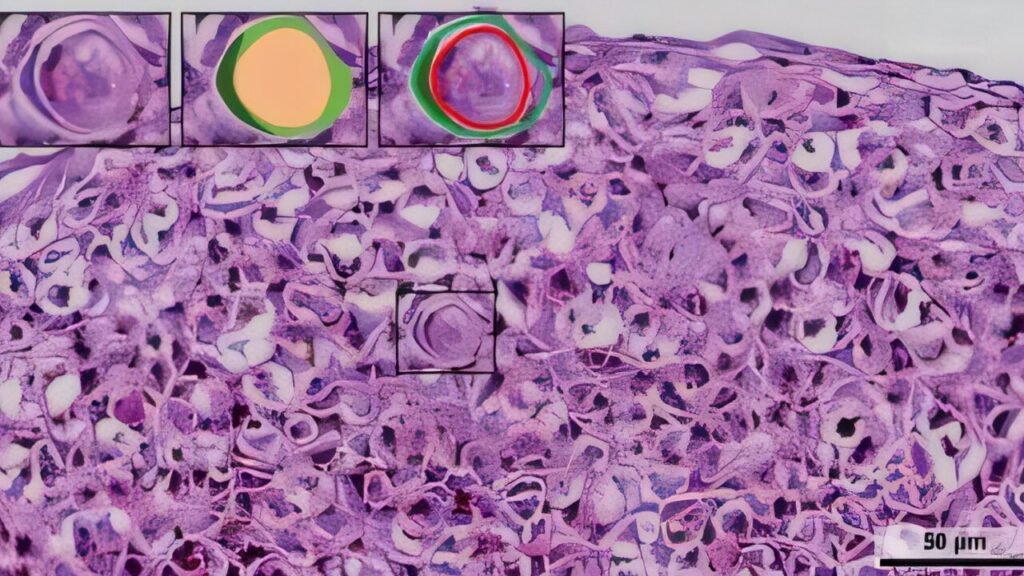Researchers from the University of Sheffield, in collaboration with Fiocruz-Bahia in Brazil, have made a breakthrough in understanding the phenomenon of cell cannibalism in oral cancer. This mysterious process involves one cancer cell engulfing another to survive, and the researchers are shedding new light on how this behavior impacts tumor growth and treatment resistance.
The discovery of cell cannibalism in oral squamous cell carcinoma, the most common type of oral cancer, could have significant implications for predicting cancer outcomes and developing more effective treatments for patients. These cell-in-cell structures have been linked to a worse prognosis in oral cancer, and understanding their formation and function is crucial for advancing cancer research.
Professor Dan Lambert, Deputy Dean of the School of Clinical Dentistry, explained that the research aims to uncover how the tumor microenvironment influences cell cannibalism. Specifically, the role of cancer-associated fibroblasts in driving this process is of particular interest to the researchers.
Using a combination of innovative approaches, the team analyzed gene expression patterns in oral cancer cases, recreated tumor environments in laboratory models, and utilized spatial transcriptomics to map gene activity within tissue samples. Their findings revealed that the presence of cancer-associated fibroblasts increased the formation of cell-in-cell structures in tumor spheroids, indicating higher metabolic activity within these structures.
The researchers are now investigating the role of extracellular vesicles released by fibroblasts in triggering cell cannibalism. This knowledge could lead to the development of new prognostic markers for clinicians, allowing for more personalized treatment strategies that target the survival mechanisms of tumor cells.
Leonardo de Oliveira Siquara da Rocha, a Postdoctoral Researcher involved in the study, emphasized the importance of understanding the biology of cell cannibalism in identifying new ways to combat tumor growth and treatment resistance. The ultimate goal is to develop therapeutic strategies that inhibit pathways associated with cell cannibalism and improve cancer outcomes for patients.
The collaboration between the University of Sheffield and Fiocruz-Bahia, supported by the Brazilian National Council for Scientific and Technological Development, has been instrumental in advancing this research. The project was recently selected for the Newton Advanced Fellowship Grant, highlighting its significance in promoting international research partnerships.
Looking ahead, the researchers hope to integrate cell-in-cell detection into standard cancer diagnostics and explore the potential of AI-based pathology tools that utilize these structures for prognosis and treatment planning. By unraveling the mechanisms of tumor cell cannibalism, this research has the potential to revolutionize cancer treatment strategies and improve outcomes for patients with oral cancer.


